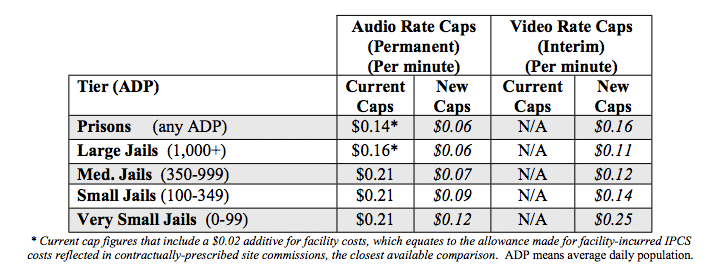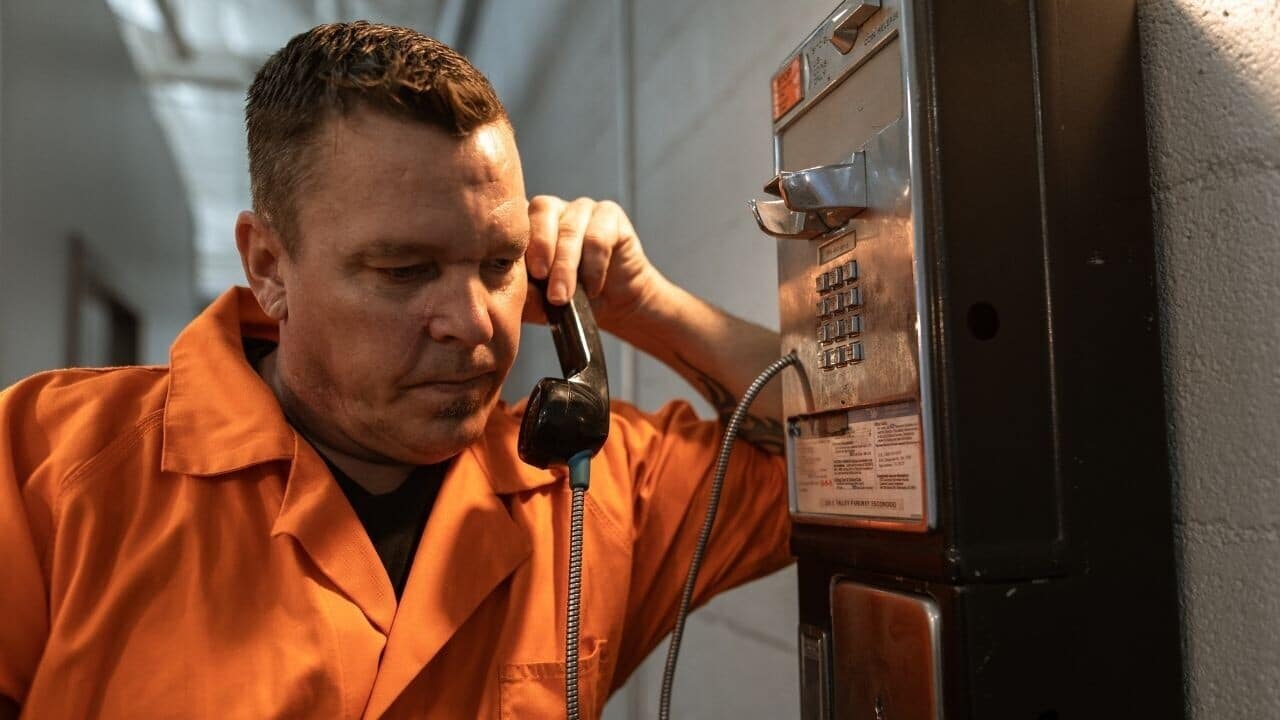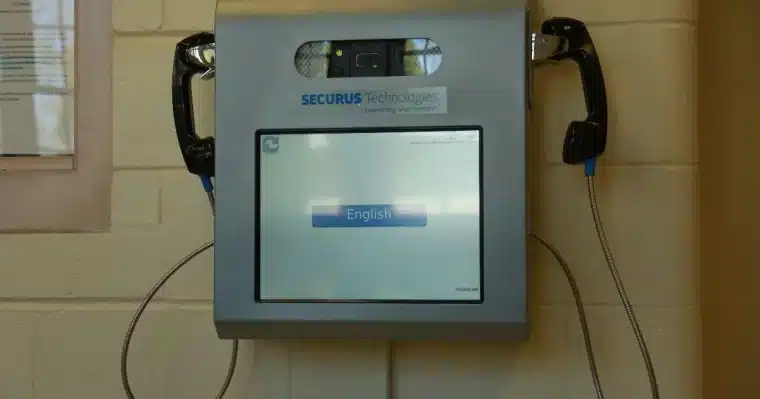Incarcerated individuals have faced exorbitant costs for decades when they make phone or video calls and send electronic messages to their relatives and loved ones.
The high rates charged by the specialized telecom companies that provide these services represent a significant financial burden to families that are already struggling to make ends meet in most cases. These costs don’t just bankrupt struggling families. They can severely limit their ability to help inmates stay connected with their much-needed support networks too.
The cost of communicating while serving jail time varies widely from one facility to the other. However, it has always been much higher compared to standard residential or even commercial rates.
Before the Federal Trade Commission (FTC) recently intervened to cap these rates, inmates in large jails were forced to pay as much as $11.35 for a 15-minute call while those who were serving time at smaller facilities had to pay even more.
Two Companies Allegedly Monopolize Inmate Communication Services in the U.S.
The two largest providers of these types of services for inmates and jails are Securus Technologies and ViaPath Technologies. The two companies have been accused of monopolizing the market and their dominance has allowed them to charge high prices while providing poor-performing services in some cases amid the lack of competition.
At St. Clair County Jail in Michigan, a facility where face-to-face interactions or in-person meetings are not allowed (which is likely a violation of the Constitution), Securus recently introduced the possibility of connecting with family members and friends through jail-issued tablets.
Also read: Binance, CZ Slammed with Class Action Lawsuit Over Alleged Money Laundering
Inmates were charged $4.20 for a 20-minute phone call and $12.99 for a 20-minute video call. Additionally, the jail implemented an e-messaging service that charged 50 cents per “stamp” (required for each message) with an additional stamp required for attachments and a $3.75 transaction fee for purchasing stamps.
The introduction of tablet programs in many facilities has provided additional communication options but has also introduced extra costs. At St. Clair County Jail, inmates had to pay $5 a month just to rent a tablet. In other facilities, such as those under contract with Securus in New York City, purchasing a song can cost up to $2.50 while a movie rental can cost between $2 and $25. Meanwhile, monthly subscription packages for entertainment content can cost over $20.
Inmates and Families Criticize the System
The high cost of communication services in correctional facilities has been widely criticized as unfair and exploitative (if not totally illegal and unconstitutional). Advocacy groups argue that these high rates take advantage of a captive market, forcing inmates and their families to pay inflated prices for essential communication. Essentially, these companies operate the most obvious monopolies in America. Inmates literally have no other options, especially in facilities where in-person communication is banned, so they jack up prices to ludicrous levels to take advantage of that power.
Tray Proch, a former inmate at St. Clair County Jail, expressed his frustration with the system: “It’s not the tablets that are the problem. My issue is how they were wielded. They were used to extort people.” This sentiment is echoed by many inmates and their families who struggle to stay connected due to the high costs involved.
The impact of these high rates extends beyond the financial aspect. Research has shown that maintaining strong family connections during incarceration can lead to lower recidivism rates, improved mental health for inmates, and better outcomes for children of incarcerated parents.
However, the high cost of communicating can significantly limit these beneficial interactions.
FCC Puts Cap on Inmate Phone and Video Call Rates

The FCC has recognized the issue and taken decisive steps to address it. In July 2024, the agency voted to implement new rules that aimed to drastically reduce the cost of phone and video calls for incarcerated individuals.
Under these new regulations, the cost of a 15-minute phone call will be capped at $0.90 in large jails and $1.35 in small jails. The FCC argues that these caps are necessary to ensure just and reasonable rates for inmate communication services.
Meanwhile, the cost of a video call was capped at $1.65 for large jails and $2.1 at smaller facilities.
Also read: Why Did Martha Stewart Go to Jail? Her Crimes, Rehabilitation & Lessons Learned
Organizations like the Human Rights Defense Center and EPIC (Electronic Privacy Information Center) have advocated for years that the cost of inmate communications must be reduced. They argue that the current system is exploitative and that the monopolistic nature of prison telecom contracts leads to subpar service and inflated prices.
Paul Wright, executive director of the Human Rights Defense Center, points out the lack of choice for inmates: “The consumer, the prisoner, has no choice.” Advocacy groups have pushed for not only lower rates but also for improved service quality and stronger protections for inmate privacy.
The Prisoners’ Perspective
Inmates and former inmates consistently report that the high cost of communication is a significant issue. Many of them struggle to maintain close ties with family members, including their children, due to these exorbitant costs. Others report having to choose between making calls to family or purchasing basic necessities from the commissary.
David Thornton, incarcerated at San Francisco County Jail, emphasized the importance of affordable communication options: “A lot of people are here because of financial struggles. If they have to come in here and struggle all over again…that’s an unfair program.”
Telecom companies that provide services to correctional facilities, such as Securus and ViaPath, argue that their services provide safe access to digital communication and entertainment and make the lives of incarcerated individuals much better. They maintain that the costs associated with providing these services in a secure correctional environment justify the higher rates (but critics argue this is an absurd excuse).
Securus has stated that it has “deployed 600,000 tablets to help bridge the digital divide, creating safe, affordable, and sustainable connections that would otherwise not be available to incarcerated individuals.”
Also read: Inside Singapore’s Largest Money Laundering Scheme Washing Billions of Dollars
These companies have not abided by the caps imposed by the FCC yet. A study from the Wall Street Journal that analyzed the information provided by ViaPath in its financial reports indicated that it still charges fees above the maximum set by the agency at around 80% of the facilities it serves.
It’s difficult to tell what might happen to these noncompliant companies if they continue to price gouge inmates, but apparently they don’t think its worth it to stop. They likely have varying motivations as some of them are struggling to repay major debts. According to information from WSJ, ViaPath and Securues recently refinanced over $1 billion in debt that originated primarily from leveraged buyouts.
Are Paid Inmate Communications Legal At All?
Providing communication services to inmates is legal in the United States. However, these services have been increasingly scrutinized and regulated due to the concerns cited earlier.
The Martha Wright-Reed Just and Reasonable Communications Act, passed in 2022, empowered the FCC to enforce reasonable rates for inmate communication services, including both interstate and intrastate calls.
Under this act, the FCC has the authority to:
- Set rate caps for voice and video calls.
- Prohibit certain fees and charges.
- Regulate site commissions (payments from service providers to correctional facilities).
However, it’s important to note that not all services provided to inmates fall under the FCC’s jurisdiction. For example, e-messaging services and certain tablet-based entertainment options are not currently covered by the FCC’s rate caps.
The legality of these services depends on compliance with FCC regulations and any applicable state laws. Some states and localities have taken additional steps to regulate inmate communication services. For instance, New York City made jail phone calls free in 2019 and Connecticut did the same in 2022.
The issue of high-cost communication services for inmates is quite complex. While recent FCC regulations promise to bring down the cost of phone and video calls the agency may still struggle to ensure fair and affordable access to communication for all incarcerated individuals.
As these new regulations are implemented, the FCC will have to be constantly on the lookout to ensure that telecom companies comply with rate caps. Additionally, more rules may have to be enacted to address services that are not currently covered by the FCC’s rules such as e-messaging and tablet-based entertainment.

